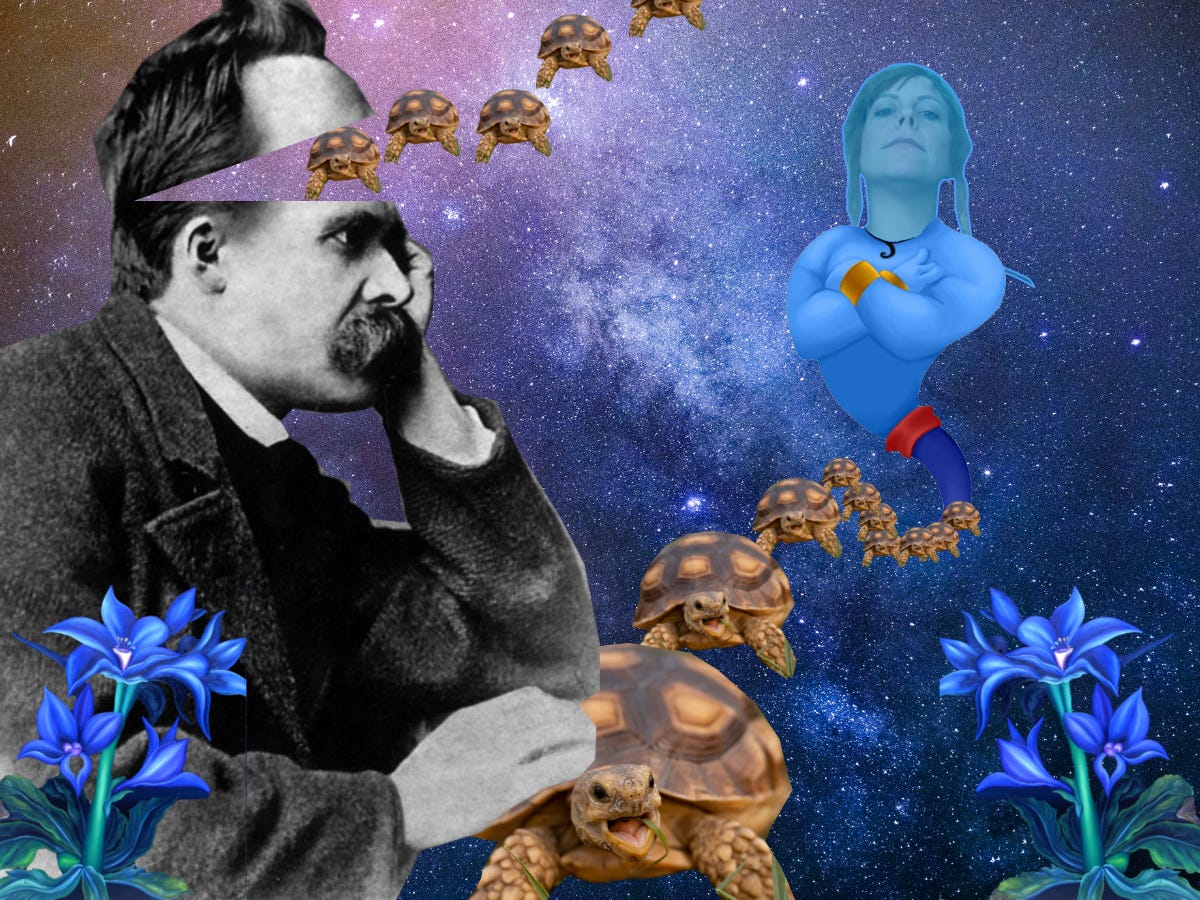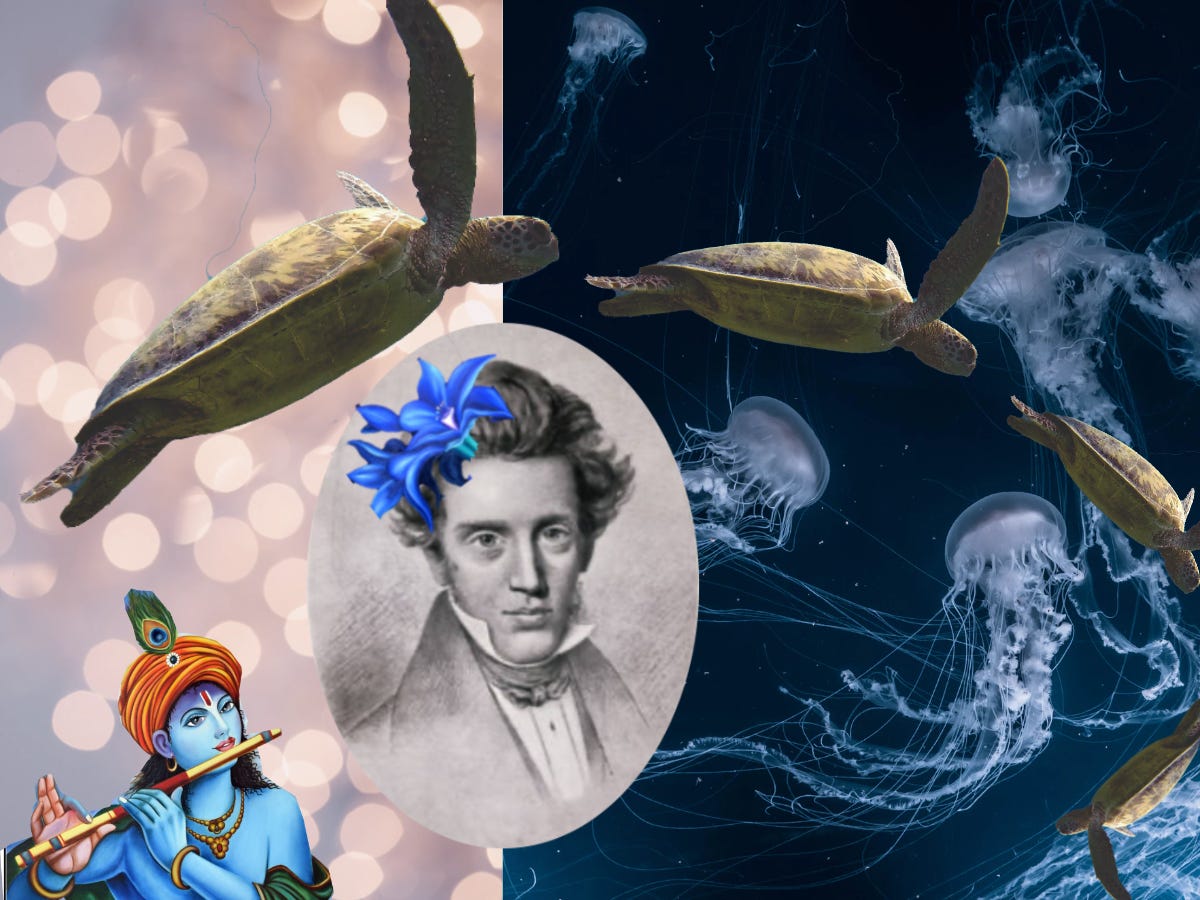I’d always expected that one day, my life would leave a dent in the Universe. I will have mattered.
One day, I will do something spectacular that the whole world will care about. People will not only want what I offer but also need it. And not just human people. But non-human people - plants and animals - will be fortunate to be alive when I am alive. Life will prosper and flourish because of me.
Then, one day - sometime later - the possibility crossed my mind that I would just maybe not be that person.
What?
I startled myself.
It can’t be true.
I was only a kid and couldn’t grasp that threat to my identity, self-worth, and the inherent importance of being on this planet.
Where that grandiosity came from? Absolutely no idea. Likely the curse of my generation.
One day - sometime much later - the possibility that I am not that very important person landed. I was in my early thirties, and although I had done many things that I loved and felt very passionate about, I also didn’t save millions of human and non-human lives yet, had a mere 450 Instagram followers, surprisingly not won a noble price yet, or been invited to a talk show (I was on the radio once. Just saying). Publicly, people would confirm that I am not THAT person.
Once my ego started to grapple this profound realization, I wondered where to go from here. My life had meaning because I thought I would do something meaningful.
I have been working in sustainability for more than ten years. It wasn’t just a job for me, but it was my life. The question that has always driven me has been how to live in a world that faces multiple crises. Climate change, species extinction, inequality, epidemics.
Yet, after many years in this field, the meaning I got from it started to wear off. The reason I did these things was tightly linked to what I thought I’d be someday: an essential person who helps life flourish. But now, I have come to the realization that not only am I not that important, but it’s also very likely that I don’t contribute much to making life flourish.
At the same time, I realized that much of what I valued, or much of what anyone values for that matter, is constructed. There is no outside, objective truth-telling me what is good or bad, right or wrong, better or worse. I began to see the world, as Hanzi Freinacht puts it, as
“radically, unyieldingly and completely socially constructed, always relative and context-bound.”
Additionally, my research work made me detached from the real, phenomenological world. Instead, I was caught in abstractions and internal debates about the nature of reality. This only added to my sense of meaninglessness. As Iain McGilchrist notes,
“abstraction, detachment, and disengagement, taken too far, lead directly to a failure of the means to understand, and ultimately to philosophical nihilism.”
What followed was a sense of meaninglessness. Nothing in life seemed to matter much. Not even sustainability.
Friedrich Nietzsche called this Nihilism, which (quoting Wikipedia) “is a philosophy, or family of views within philosophy, that rejects generally accepted or fundamental aspects of human existence, such as objective truth, knowledge, morality, values or meaning.”
In the middle of the twentieth century Friedrich Nietzsche, among Soren Kierkegaard and Franz Kafka, seemed to be prophets foreseeing the loss of meaning on a societal level due to a compartmentalization between reason and emotion, due to the loss of a belief in God, and due to the loss of, as Victor Frankl summarises it a loss of
“a sense of the worth and dignity of the human being in which the individual is swallowed up in the herd.”
Eventually, I was able to make sense of the world and - for the most part - able to overcome this utterly existential, unsettling mindfuck. Through many conversations, I sensed that I am not the only one out of 7.96 billion people with this experience. Within the following weeks, I will therefore write more about my way out of this and share insights from my analysis about why I, in particular, and I think many people in general, might feel this way. If there is a question that you are particularly interested in, get in touch.
Warmly,
Jes





